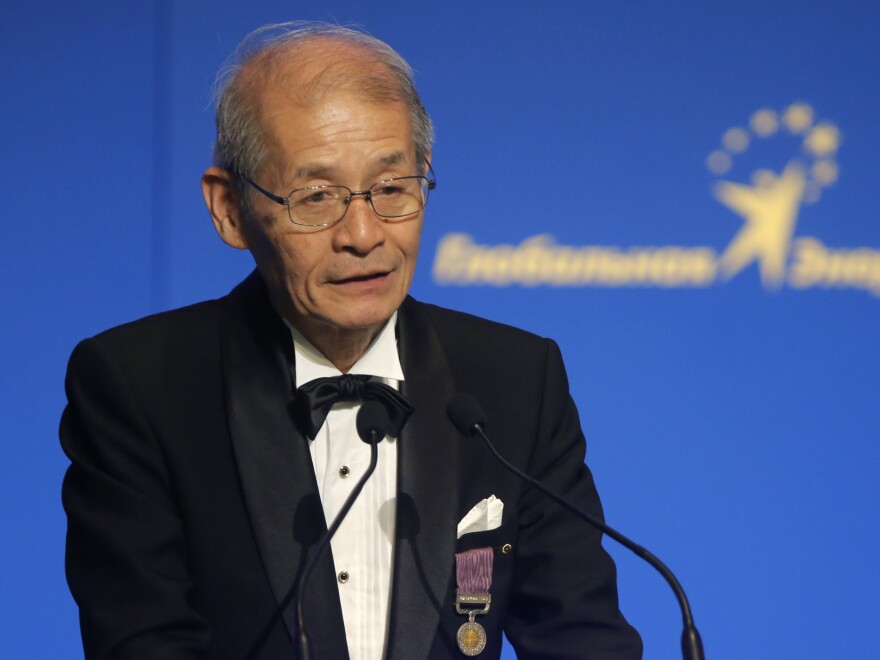The Nobel Prize in chemistry was awarded jointly to John B. Goodenough, M. Stanley Whittingham and Akira Yoshino for the development of lithium-ion batteries.
"Lithium-ion batteries have revolutionized our lives and are used in everything from mobile phones to laptops and electric vehicles," the Nobel Committee said. "Through their work, this year's Chemistry Laureates have laid the foundation of a wireless, fossil fuel-free society."
Goran K. Hansson, the secretary-general of the , made the announcement on Wednesday in Stockholm.
The academy said that Goodenough of the University of Texas at Austin, who was born in 1922 in Germany, is at 97 the oldest-ever Nobel laureate. The prize is shared with U.K.-born Whittingham of Binghamton University in New York and Yoshino with Meijo University in Japan.
In the early 1970s, Whittingham developed the first functional lithium-ion battery, and in the following decade, Goodenough found a way to double the battery's potential. Yoshino made the battery safer by eliminating the need for pure lithium, a highly reactive metal.

The Nobel in chemistry is the third prize awarded so far this year. The Nobel in physiology and medicine was announced Monday and physics on Tuesday.

Past recipients of the prestigious award have included Ernest Rutherford, who won in 1908 for his work on "the disintegration of elements, and the chemistry of radioactive substances," and Marie Curie in 1911 for her discovery of the elements radium and polonium. Last year, the award went to Frances H. Arnold "for the directed evolution of enzymes," George P. Smith and Sir Gregory P. Winter "for the phage display of peptides and antibodies."
Frederick Sanger, who won in 1958 and 1980, is the only Nobel laureate to have won in chemistry twice.
The Nobel this year includes 9 million kronor ($918,000) in cash, which will be split among the recipients.
Copyright 2020 NPR. To see more, visit https://www.npr.org. 9(MDAwMzY5MzE4MDEzMTE3ODg5NDA4ZjRiNg004))

